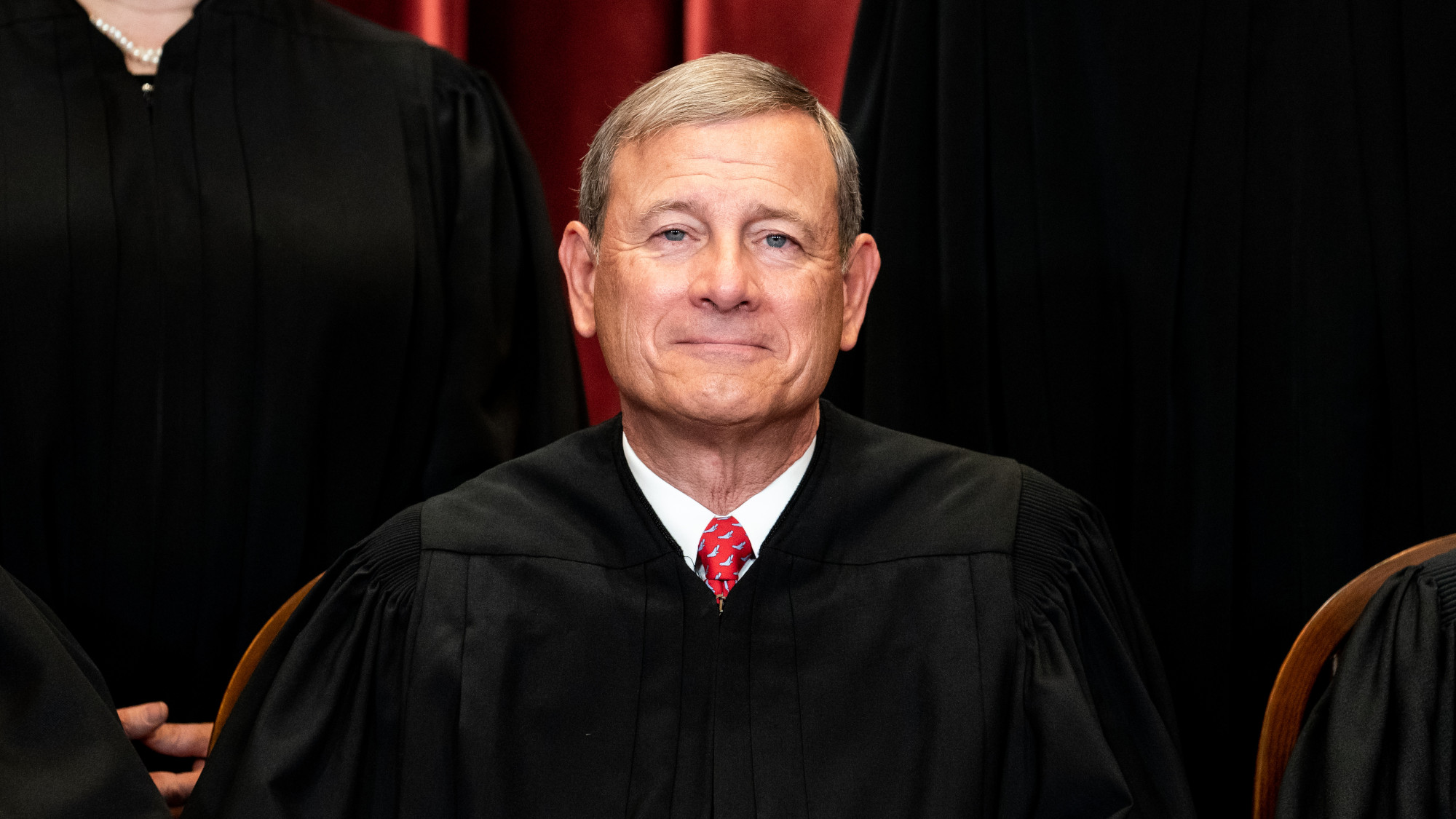Supreme Court: Judging 20 years of Roberts
Two decades after promising to “call balls and strikes,” Chief Justice John Roberts faces scrutiny for reshaping American democracy

A free daily email with the biggest news stories of the day – and the best features from TheWeek.com
You are now subscribed
Your newsletter sign-up was successful
John Roberts has now spent two decades “dismantling American democracy,” said David Faris in Newsweek. Sworn in as the Supreme Court’s chief justice in fall 2005, the George W. Bush appointee pledged to be a neutral umpire who “calls balls and strikes.” Instead, the conservative-dominated Roberts court has systematically “aggrandized its own power and that of the Republican Party.” It dismantled campaign finance laws with 2010’s Citizens United, opening a path for billionaires to buy power; gutted the Voting Rights Act with 2013’s Shelby County; and rolled back women’s rights by overturning Roe v. Wade in 2022. “But perhaps the gravest blow to American democracy was delivered in 2024” when the court ruled—in an opinion written by Roberts himself—that presidents enjoy “presumptive immunity” for almost all their official acts. The ruling ended multiple prosecutions of Donald Trump and gave him “a green light to engage in virtually unlimited corruption and law-breaking” when he returned to office in January. “This nightmare situation is Roberts’ doing.”
For conservatives, Roberts’ tenure has been a triumph, said The Wall Street Journal in an editorial. His court has issued “strong and significant” rulings defending the First Amendment, including that religious business owners can’t be forced by Obamacare to cover what they view as abortion medications, and reasserted the right to bear arms. Yet there’s no “clear judicial philosophy” linking Roberts’ decisions, said Damon Root in Reason. He’s sometimes restrained presidential overreach—blocking President Joe Biden from forgiving student loans and President Trump from ending a program that shields young migrants from deportation—and sometimes enabled it. There’s no telling “which version of the chief justice will emerge” in the new court term that began last week.
This term will be the Roberts court’s “most consequential yet,” said Noah Feldman in Bloomberg. It will decide whether Trump can seize tariff powers from Congress, fire Federal Reserve governors at will, and erase birthright citizenship from the Constitution. Don’t expect Roberts to rein in “the wannabe authoritarian,” said Jackie Calmes in the Los Angeles Times. A court that last month empowered federal agents to racially profile and detain anyone they suspect of being in the U.S. illegally—“the Fourth Amendment be damned”—is not one that will defy Trump. “Not since the pro-slavery Taney court before the Civil War has a Supreme Court been so wrong for its moment in history.”
The Week
Escape your echo chamber. Get the facts behind the news, plus analysis from multiple perspectives.

Sign up for The Week's Free Newsletters
From our morning news briefing to a weekly Good News Newsletter, get the best of The Week delivered directly to your inbox.
From our morning news briefing to a weekly Good News Newsletter, get the best of The Week delivered directly to your inbox.
A free daily email with the biggest news stories of the day – and the best features from TheWeek.com
-
 How the FCC’s ‘equal time’ rule works
How the FCC’s ‘equal time’ rule worksIn the Spotlight The law is at the heart of the Colbert-CBS conflict
-
 What is the endgame in the DHS shutdown?
What is the endgame in the DHS shutdown?Today’s Big Question Democrats want to rein in ICE’s immigration crackdown
-
 ‘Poor time management isn’t just an inconvenience’
‘Poor time management isn’t just an inconvenience’Instant Opinion Opinion, comment and editorials of the day
-
 Democrats push for ICE accountability
Democrats push for ICE accountabilityFeature U.S. citizens shot and violently detained by immigration agents testify at Capitol Hill hearing
-
 Fulton County: A dress rehearsal for election theft?
Fulton County: A dress rehearsal for election theft?Feature Director of National Intelligence Tulsi Gabbard is Trump's de facto ‘voter fraud’ czar
-
 ‘Melania’: A film about nothing
‘Melania’: A film about nothingFeature Not telling all
-
 Supreme Court upholds California gerrymander
Supreme Court upholds California gerrymanderSpeed Read The emergency docket order had no dissents from the court
-
 Greenland: The lasting damage of Trump’s tantrum
Greenland: The lasting damage of Trump’s tantrumFeature His desire for Greenland has seemingly faded away
-
 Minneapolis: The power of a boy’s photo
Minneapolis: The power of a boy’s photoFeature An image of Liam Conejo Ramos being detained lit up social media
-
 The price of forgiveness
The price of forgivenessFeature Trump’s unprecedented use of pardons has turned clemency into a big business.
-
 Reforming the House of Lords
Reforming the House of LordsThe Explainer Keir Starmer’s government regards reform of the House of Lords as ‘long overdue and essential’